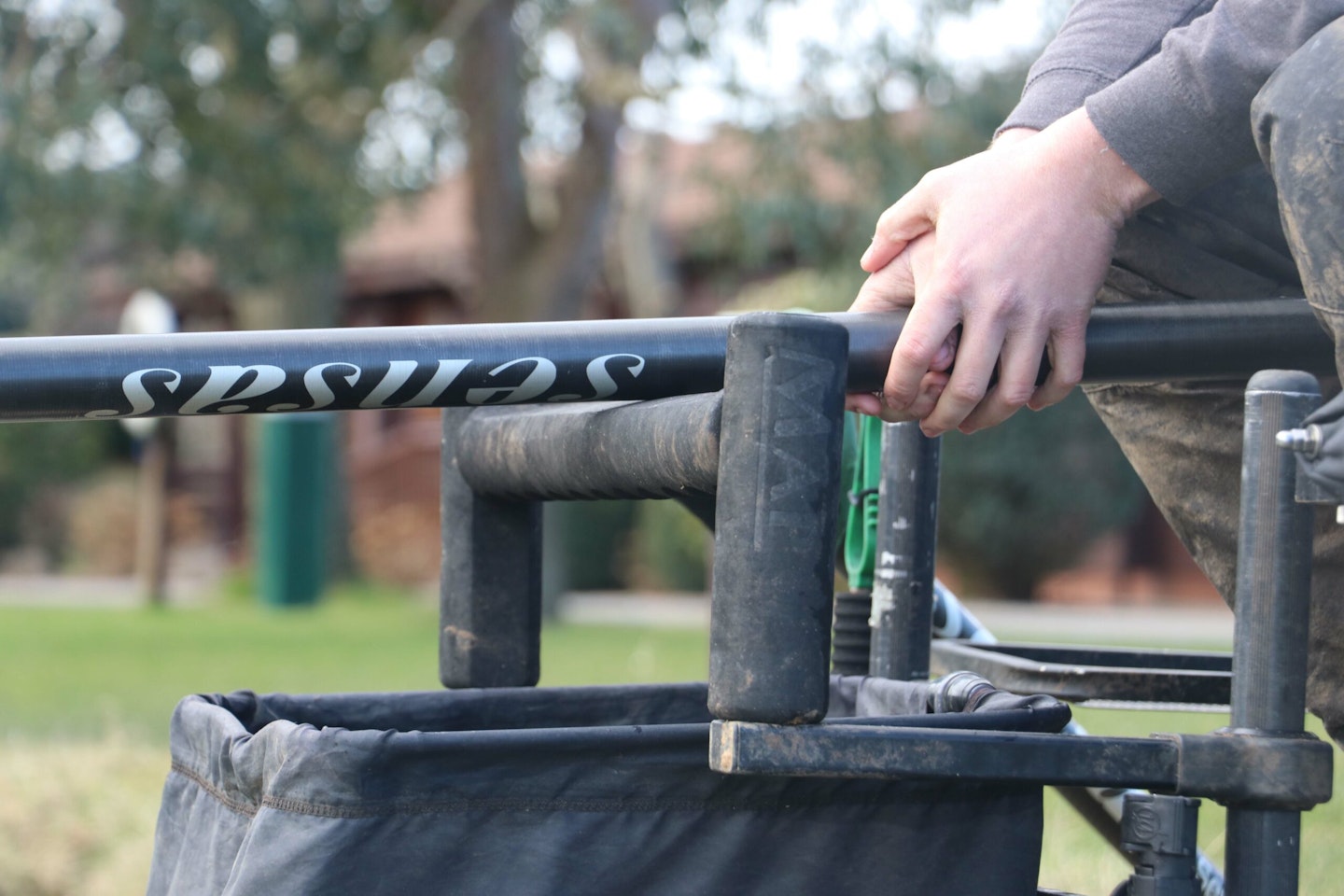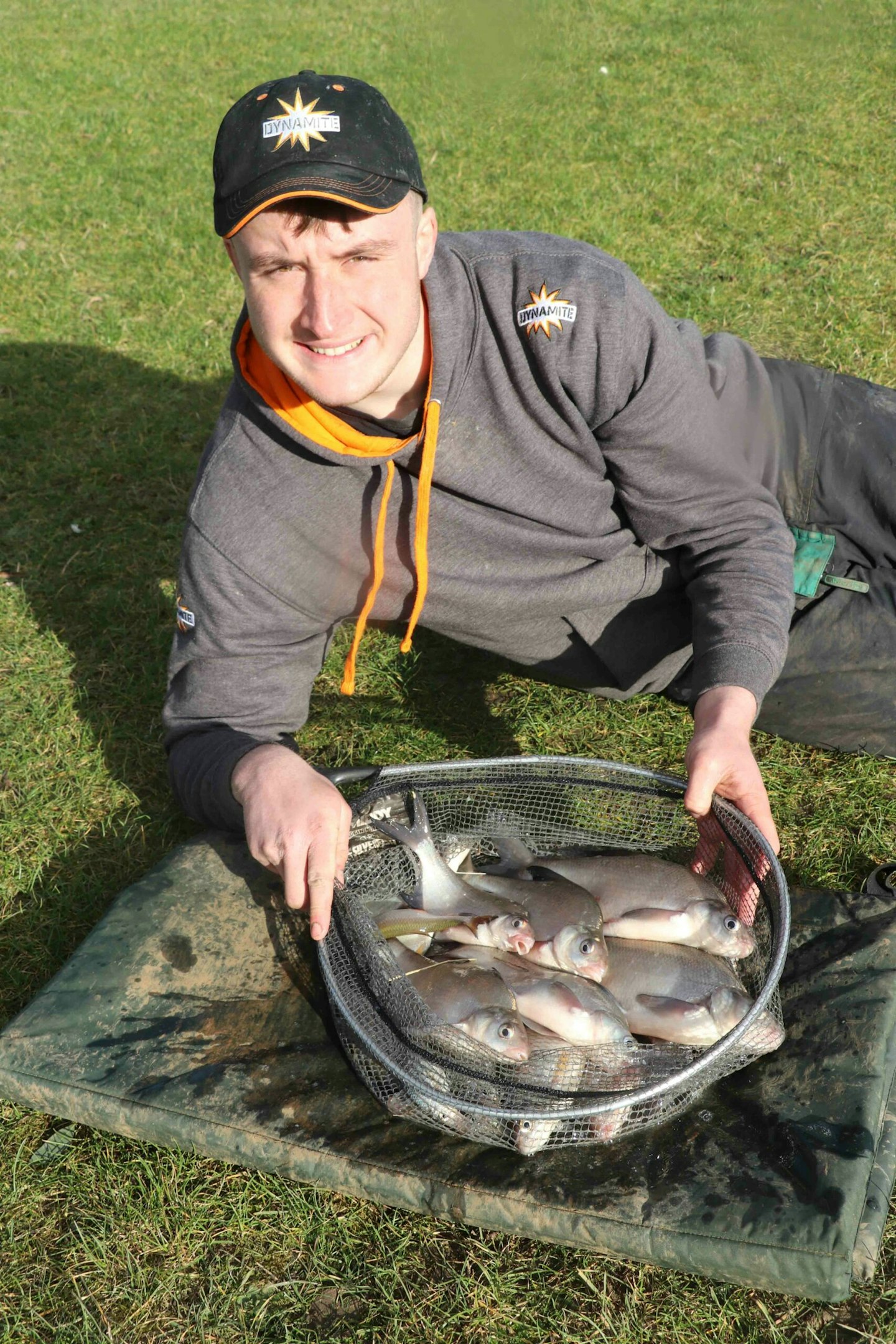IN EARLY spring commercial carp, F1s and skimmers don’t always feed properly, and catching consistently can be hard going – unless you think outside of the box.
For me, that means looking at what’s going on the hook. The fish have seen it all before, so only by giving them something totally different will you trigger the right response. That’s why micro pellets are my choice.
Yes, that’s right, micros! You may be thinking ‘how’, as at first glance they seem impossibly small to get on to the hook. The truth is that they’re not, and because they’re the same in terms of size, shape and texture to the pellets you’re feeding, the fish won’t view them with suspicion.
Here's how I do it...

Micros for the hook
I prepare micro hookers by soaking them until they’re of the consistency you’d use for a Method feeder, then soak them again. They shouldn’t split when you hook them.
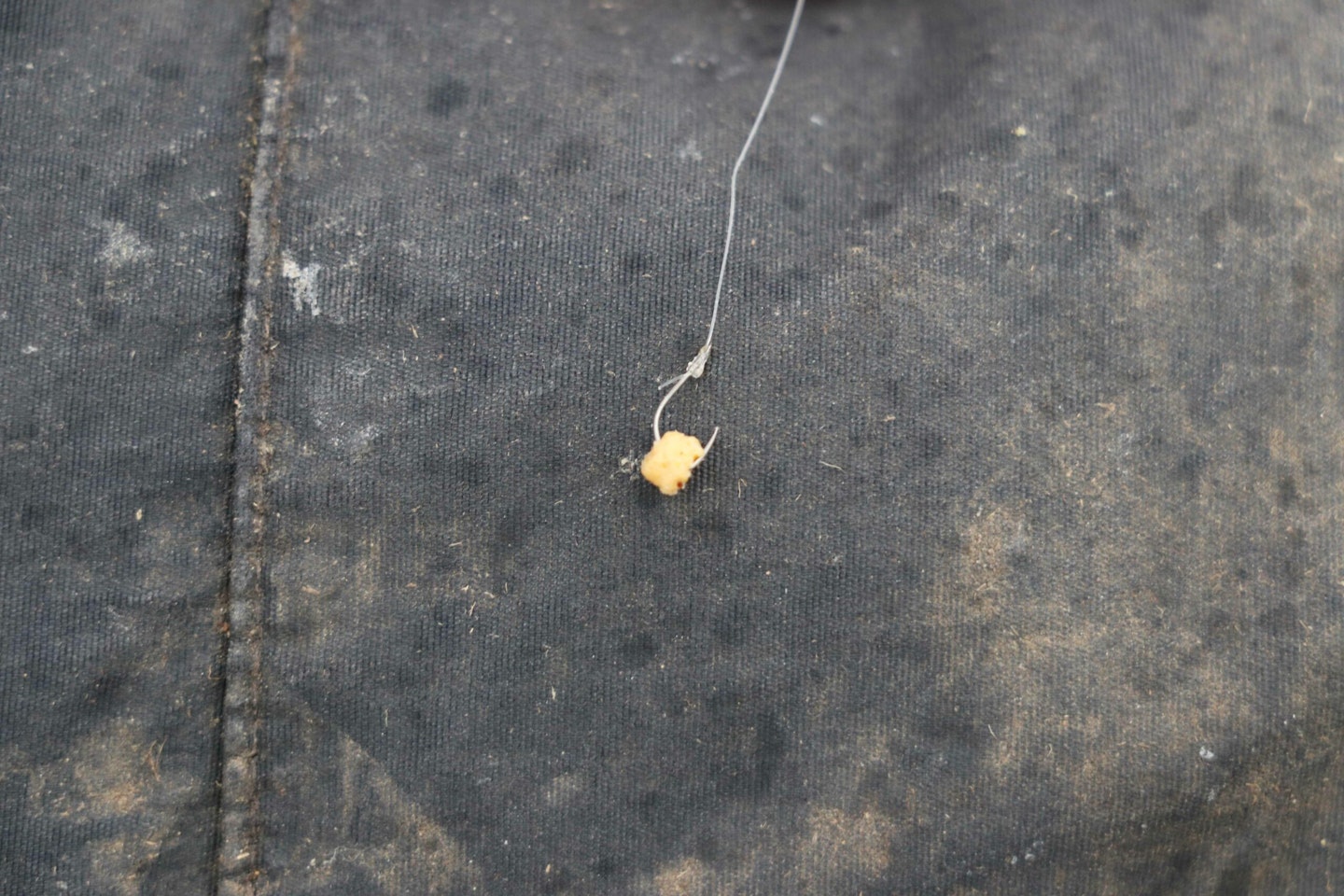
Groundbait starters
Groundbait at the start will get the swim going. I’ll feed a cup of 50/50 Dynamite Marine Sweet Fishmeal and Silverfish Dark holding a few dampened micros on both pole lines.

Feed it loose
In silty swims it’s a good idea to feed the groundbait loose. It’ll spread out as it sinks, covering the bottom with no danger of it sinking into the muck, as a hard ball would.
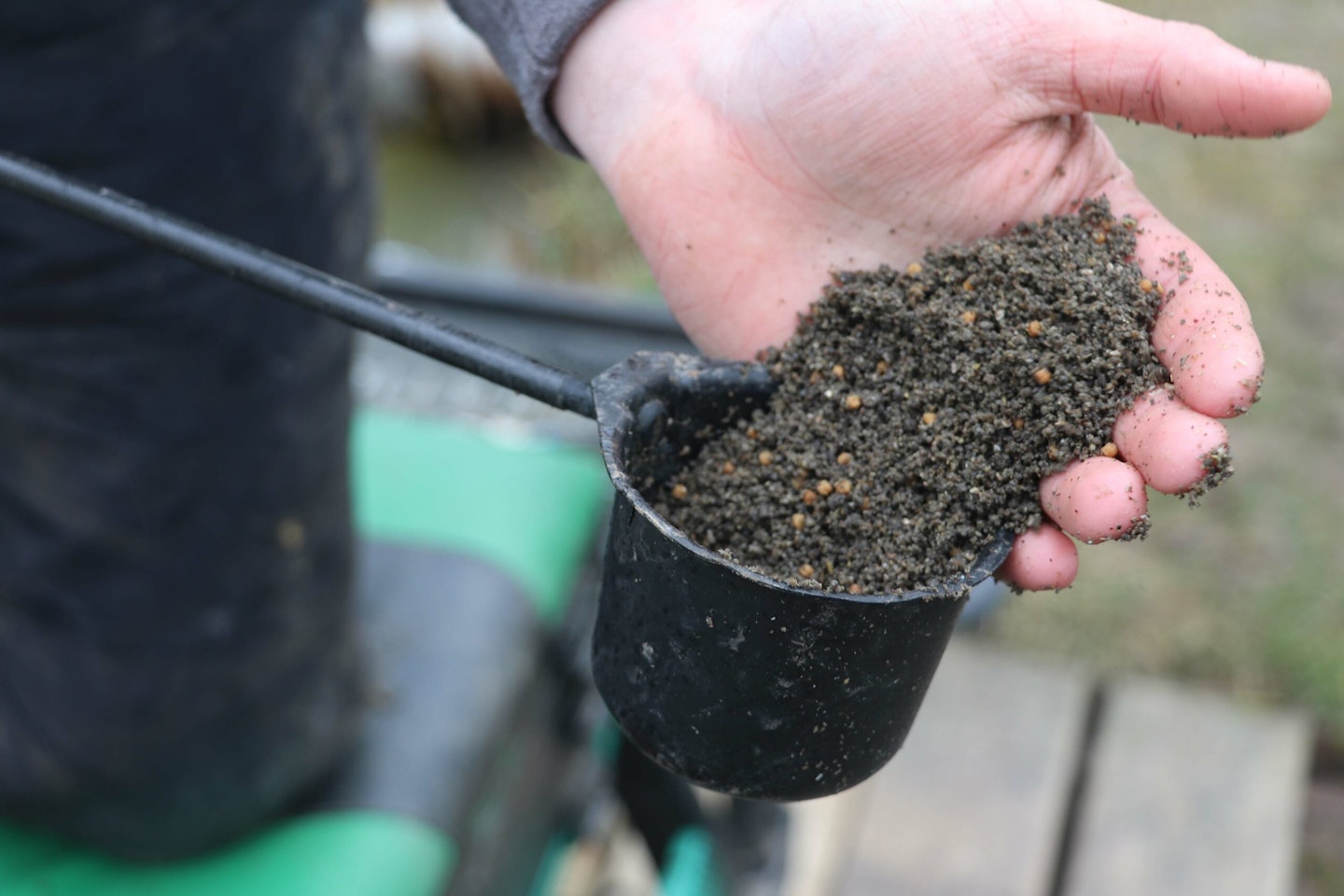
Pick a pencil float
Correct presentation starts with a slim 4x12 pencil float with a strung shotting pattern in 3ft of water. In swims of 6ft or more I’d step up to a 4x14 or even a 4x16 if it was windy.

Tap in some micros
Once the groundbait has been fed, a small Guru pole pot filled with 2mm Dynamite Baits Original Amino 2mm pellets lets me tap a steady stream of feed into the peg.
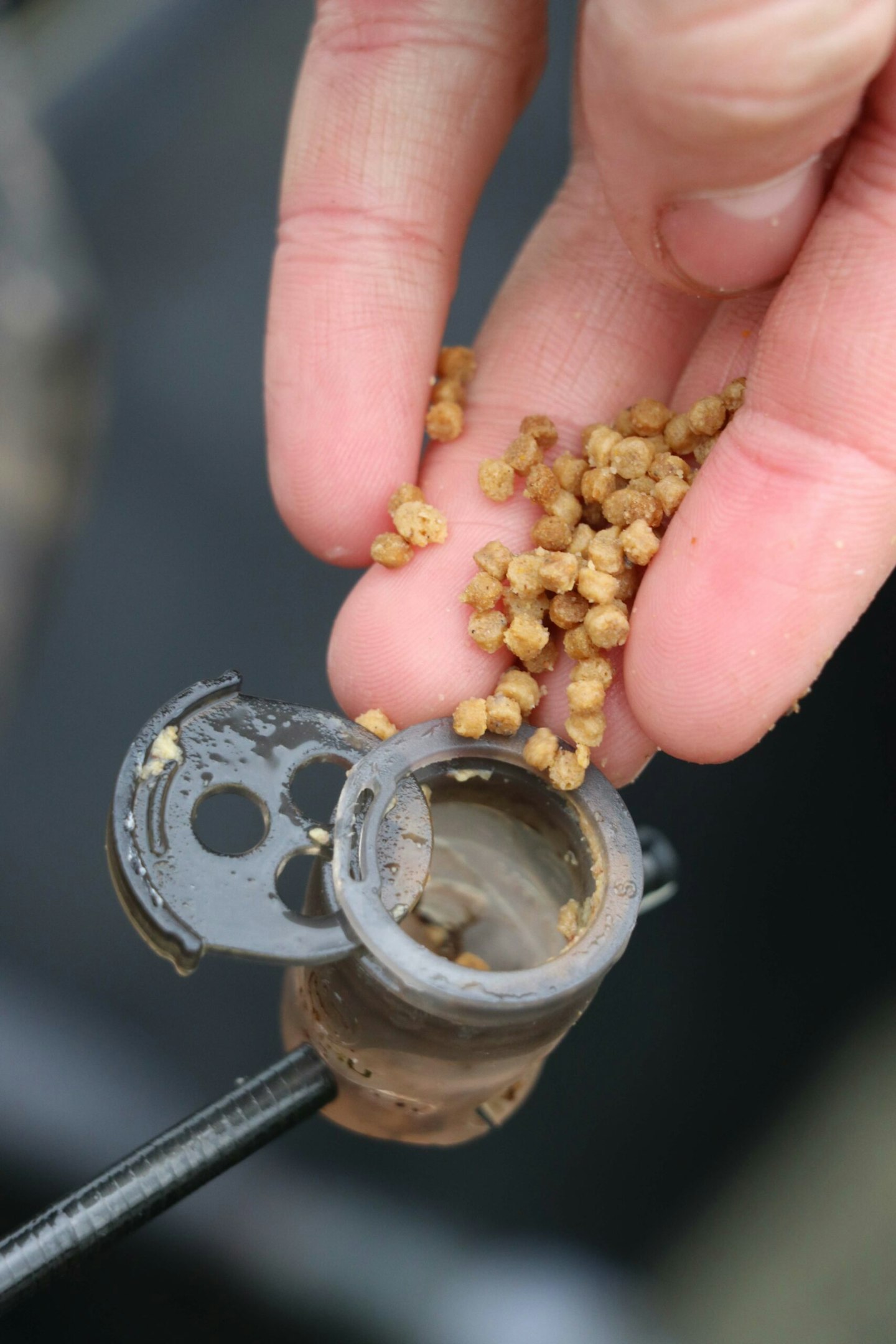
Keep the rig still
Most bites come after a short wait, so keep the bait still. After lowering the rig in, I put the pole on a bump bar and grip it with both hands. This combats any side-wind.
